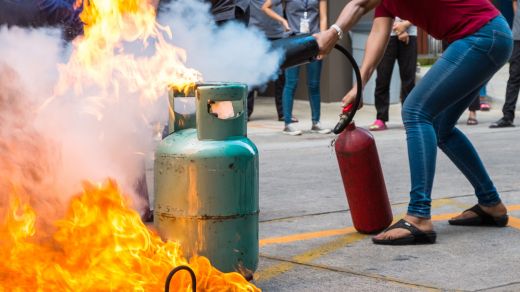Introduction
Welcome to our comprehensive guide on Gas Training Courses, designed to empower individuals with the knowledge and expertise to work safely and efficiently with gas systems. As industry-leading experts, we are committed to providing you with in-depth information and practical insights, enabling you to advance your skills and excel in the field of gas systems and safety.
The Importance of Gas Training
Working with gas systems requires a high level of technical knowledge and adherence to safety protocols. Gas-related incidents can be dangerous and even fatal, making proper training an absolute necessity. Whether you’re a newcomer to the industry or a seasoned professional looking to enhance your skills, gas training courses offer a structured and systematic approach to ensure your competence and safety.
Understanding Gas Systems
Before delving into the realm of gas training, it’s essential to have a fundamental understanding of gas systems. Gas, in various forms, is used extensively for heating, cooking, and powering machinery in both residential and commercial settings. Common gases include natural gas and LPG (liquefied petroleum gas).
The Advantages of Gas Training Courses
Investing in gas training courses comes with numerous advantages, some of which include:
1. Compliance with Regulations
Gas systems are subject to strict regulations and safety standards. By undertaking accredited gas training, professionals ensure they comply with industry regulations, minimizing the risk of accidents and legal issues.
2. Enhanced Safety
Safety is paramount when working with gas. Gas training equips individuals with the knowledge to identify potential hazards, implement safety measures, and respond effectively in emergency situations.
3. Skill Advancement
Gas training courses cater to various skill levels, from beginners to experienced technicians. As a result, participants can progress through different modules and gain expertise in specific areas, contributing to career growth.
4. Job Opportunities
Professionals who undergo comprehensive gas training often find themselves in high demand. The credentials obtained through these courses open doors to diverse career opportunities in the gas industry.
5. Customer Trust
Customers value professionals who prioritize safety and have the necessary expertise to handle gas systems. Gas training not only boosts your credibility but also instills trust among clients.
Types of Gas Training Courses
Gas training courses cover a wide range of topics, catering to different levels of proficiency. Here are some of the most common types of gas training programs:
1. Gas Safety Awareness Course
This introductory course is designed for individuals who need a basic understanding of gas safety but may not work directly with gas systems. It covers general safety principles, gas-related hazards, and how to respond in emergencies.
2. Gas Foundation Course
The foundation course is suitable for newcomers to the gas industry. It provides a comprehensive overview of gas systems, including installation, maintenance, and safety practices.
3. Gas Engineer Certification Scheme (ACS)
The ACS certification is a crucial qualification for gas engineers. It assesses the competency of individuals working with gas appliances and systems, ensuring they meet industry standards.
4. Gas System Design Course
For professionals involved in gas system design, this course offers insights into the principles of efficient and safe gas distribution within buildings and industrial settings.
5. Gas Safety Management Course
This advanced course is ideal for gas supervisors and managers. It covers gas safety regulations, risk assessments, and the implementation of safety protocols in a managerial capacity.
Advancing Skills and Knowledge
Gas training courses not only cover the theoretical aspects but also emphasize practical training to develop hands-on skills. Participants learn how to conduct safe installations, identify faults, and carry out necessary repairs. The training often includes:
– Gas Appliance Installation and Maintenance
– Gas Leak Detection and Repair
– Ventilation Requirements and Airflow Analysis
– Gas Pressure Testing and Pipework Installation
– Combustion Analysis for Optimal Efficiency
– Gas System Troubleshooting and Diagnostics
Safety First: Importance of Gas Training in Preventing Incidents
Gas-related incidents, such as leaks and explosions, can lead to catastrophic consequences. Proper gas training is vital in preventing such incidents and ensuring the safety of both professionals and the general public. Some key safety aspects emphasized in gas training courses include:
– Proper Ventilation and Airflow Management
– Gas Leak Detection and Emergency Response
– Understanding Gas Pressure and Regulation
– Safe Handling of Gas Appliances and Tools
– Awareness of Carbon Monoxide Risks
– Identifying and Managing Gas System Faults
Conclusion
Gas training courses play a pivotal role in advancing skills and knowledge in gas systems and safety. From newcomers to seasoned professionals, these courses offer a structured pathway to competence, compliance, and career growth. Emphasizing both theory and practical training, gas training equips individuals to work confidently and safely with gas systems.
If you’re looking to embark on a rewarding journey in the gas industry or enhance your existing skills, investing in gas training is a wise choice. Develop your expertise, gain industry-recognized qualifications, and prioritize safety as you contribute to a safer and more efficient gas landscape.



